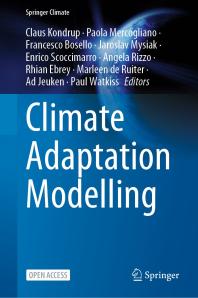How to Become a Professional Researcher
Step #1: Ask good questions
Step #2: Figure out what kind of information you need
| Academic | Popular | Books | |
|---|---|---|---|
 |
 |
||
| Use for | Original research and experimentation | Current events, opinions, and general information | Broad coverage of topics |
| Look | Plain, long articles, may contain charts and graphs | Glossy, contains color photos and everyday product advertisements | May have pictures to support text, broken down into chapters |
| Authors | Experts in their field | Journalists/reporters, staff or freelance writers | Experts in their field |
| Audience | Professors, researchers, students | Anyone | Varies |
| Citations | Footnotes or bibliography | References may be mentioned in text | Footnotes or bibliography |
Step #3: Find the research you need
The Library's website is a great place to start your research because our resources are a higher quality than what you can find free on Google.
The big search box is called Summon. It is a "Google-like" tool that searches many DelVal databases (and the book catalog) at the same time. It is a nice time saver, and it often uncovers resources that you might otherwise have overlooked.
-
Summon This link opens in a new windowA research tool that searches all DelVal databases simultaneously. Contains books, ebooks, dvds, online videos, journals, magazines, newspapers, conference proceedings, and more.
We also have many other databases, which are organized by subject, which might be better for your research.
Interlibrary Loan
If a book or article you want is not available, use Interlibrary Loan (ILL). The Library can order books and articles from other libraries. This process takes few days but is completely free for DelVal students, faculty, and staff.
Before you submit an ILL, check Google Scholar or Summon to see if we have immediate access or if it is freely available online.
-
Interlibrary LoanIf a book or article you want is not available, use Interlibrary Loan (ILL). The Library can order books and articles from other libraries. This process takes few days but is completely free for DelVal students, faculty, and staff.
Before you submit an ILL, check Google Scholar or Summon to see if we have immediate access or if it is freely available online.
How to Make your Paper Great
Step #4: Make sure it is good
A qualified author will have a background in the field they are writing about. The authors should not show bias. Opinions are backed by research and evidence.
A current publication date is something within the last 10 years typically. This can be shorter in the sciences.
A bibliography or other references are important because they let us know where the author is getting their information from.
-
Evaluating Reliable SourcesLearn to evaluate sources critically and identify what will help you with your research. (QUIZ)
Step #5: Organize your thoughts
-
Writing CenterThe Writing Center is staffed by DelVal undergraduate peer tutors who help with writing assignments in all your courses. We view writing as a process that involves planning, reading, drafting, revising, and editing—writing with substance involves discovering your meaning through brainstorming, sharing, and getting lots of feedback.
Step #5: Join the Conversation
Read through the bibliography or works cited. Are there papers that are cited a lot? Are there other resources that might be useful to you?
Most of our databases include tools to help you find other people engaged in the conversation.
Look for areas of overlap in your reading. Keep these questions in mind:
- Do any authors bring up the same points?
- Do they agree or disagree?
- Why does an author bring up a specific point, and how can you relate it to your own ideas about the topic?

